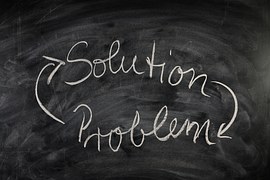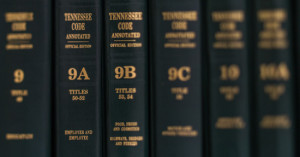American Taxpayer Relief Act of 2012
American Taxpayer Relief Act of 2012
Happy New Year! We hope this finds you having enjoyed a joyous and relaxing holiday season. As you may know, on Wednesday, January 2, 2013, the President signed into law the American Taxpayer Relief Act of 2012. The new law contains some favorable provisions for taxpayers and donors and provides some certainty, for at least another year, and in some cases, permanently. Below we have included some highlights of changes in effect for 2013 in the areas of charitable and estate planning:
The IRA Charitable Rollover
As we expected, donors age 70½ or older are once again eligible to transfer up to $100,000 from their IRAs directly to qualified charities without having to pay income taxes on the qualified distribution in 2013. In addition to the extension of the IRA Rollover provision for 2013, Congress provided two special transition rules:
1) Qualified distributions made by February 1, 2013, may be counted retroactively for the 2012 tax year. This means that it is possible for those who act in a timely manner to make IRA Rollover gifts of up to $200,000 in 2013.
2) Another unexpected but welcome feature of the new law is the “do-over” provision. Taxpayers who took a withdrawal from an IRA (mandatory or otherwise) during December 2012 may make a cash contribution to a qualified charity before February 1, 2013, and treat the gift as if it had been a direct distribution to charity that qualified as an IRA Rollover gift for 2012.
Estate, Gift and Generation-Skipping Tax Exemptions
The new law permanently preserves the current individual gift, estate and generation-skipping tax to a unified $5 million exemption level. This amount will be indexed for inflation – the inflation adjusted amount for 2013 is $5,250,000. The top gift, estate and generation-skipping tax rate was increased to 40 percent from the previous 35 percent. The new law also makes the portability of exemption between spouses permanent. The higher exemption amount will certainly limit the number of estates subject to the federal estate tax which could provide opportunities to simplify estate plans.
However, keep in mind that Tennessee still has an inheritance tax. The Tennessee inheritance tax will be phased out over the next three years. For the remainder of 2013, the inheritance tax exemption will remain $1,250,000. Beginning January 1, 2014, the exemption will increase each year as follows:
$2,000,000—2014
$5,000,000—2015
Repealed—2016
As of January 1, 2016, the Tennessee inheritance tax will be eliminated, while the Tennessee gift tax was repealed last year.
Charitable Deduction Remains
Throughout 2012, a number of proposals were made to limit the charitable deduction. Fortunately, the legislation as passed does not address or specifically limit the charitable deduction.
Individual Income Tax Rates
The new law permanently extends tax rates set by the Economic Growth and Tax Relief Reconciliation Act of 2001 and the Jobs and Growth Tax Relief Reconciliation Act of 2003 for taxpayers earning less than $400,000 a year and married couples earning less than $450,000. It increases the tax rate for high-income households earning more than that to 39.6 percent. The 2013 tax rates will be 10 percent, 15 percent, 25 percent, 28 percent, 33 percent, 35 percent and 39.6 percent.
Capital Gains Tax Rates
The capital gains and dividend tax rates for high-income households ($400,000 a year for single taxpayers and $450,000 for married couples) will increase to 20 percent. There will be no capital gains tax for taxpayers whose income falls in tax brackets below 25 percent. The capital gains tax rate will be 15 percent for taxpayers whose income falls at or above the 25 percent tax bracket but below the new 39.6 percent rate. A medicare contribution tax of 3.8% on capital gains, dividends, interest and other unearned income will also come into play in 2013 for those with adjusted gross income over $250,000 ($200,000 for single taxpayers). With higher capital gains rates and the addition of the Medicare contribution tax, gifts of appreciated stock or other appreciated property (either outright or to fund a charitable remainder trust or charitable gift annuity) will once again provide taxpayers with the opportunity to diversify out of appreciated assets in a tax efficient manner.
The next logical question is, “How does the new law impact me and my family?” Of course, it depends. Certainly, the climate for gifting is excellent. People with potentially taxable estates can make large gifts to take advantage of the high federal exemption amount without paying Tennessee gift tax. Thus, the combination of a high federal exemption and no Tennessee tax can yield extremely favorable tax and other results for your family.
We would love the opportunity to talk with you about how these changes impact your estate plan. Please contact our office to learn more about potential opportunities for you and your family with this new legislation.




 Let’s discuss legal problem solving. Does your lawyer merely work the problem, or solve the problem? There’s a difference, you know.
Let’s discuss legal problem solving. Does your lawyer merely work the problem, or solve the problem? There’s a difference, you know. Law FAQ: I was in a car wreck in Tennessee, and I may be partially at fault. Do I still have a legal claim?
Law FAQ: I was in a car wreck in Tennessee, and I may be partially at fault. Do I still have a legal claim? In a car wreck case, or any other case, “negligence” is the legal term for failing to exercise reasonable care and caution under a given set of circumstances. It is commonly referred to as “the ordinary, reasonable person” standard. Legal liability is assessed when a person fails to follow society’s most basic “rules of the road” so to speak.
In a car wreck case, or any other case, “negligence” is the legal term for failing to exercise reasonable care and caution under a given set of circumstances. It is commonly referred to as “the ordinary, reasonable person” standard. Legal liability is assessed when a person fails to follow society’s most basic “rules of the road” so to speak.